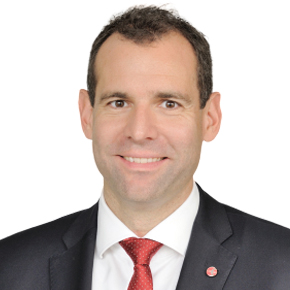
Tax complexity for multinational companies: Increasingly complex regulations
Ever-changing regulations, global tax competition and digitalisation mean that multinational corporations (MNCs) are confronted with increasing tax complexity. This is revealed in the “Global MNC Tax Complexity Survey 2022”.
The study has been published every two years since 2016 by the Ludwig Maximilian University of Munich and the University of Paderborn. Among the 16 international tax service networks and companies surveyed, colleagues from ECOVIS International were also able to contribute their knowledge and experience.
Tax systems around the world are not getting any easier. Multinational companies need a lot of financial and human resources to meet their tax obligations.Alexander Weigert, auditor, tax consultant and board member at Ecovis in Munich, Germany
The key messages from the Global MNC Tax Complexity Survey 2022
The study describes
- how difficult it is to read, understand and comply with tax regulations and
- how complex the legislation and administrative processes are in the different countries.
Of the 15 tax regulations examined, consultants in 65 of 95 countries rate transfer pricing as the most complex, with an index of 0.64.
From 2020, the survey has also questioned the influence of digital technologies on various tax processes. In 77 of 95 countries, filing and paying taxes have seen the most changes as a result of digitalisation. Other dimensions, such as access to digital legal redress procedures, have changed little or not at all through digital technologies.
The complexity of selected tax regulations worldwide and in Germany
| Tax regulation | Index[1] worldwide | Index[1] Germany |
| Transfer pricing | 0,64 | 0,74 |
| Foreign-controlled company rules | 0,52 | 0,64 |
| Corporate reorganisation | 0,52 | 0,56 |
| General anti-avoidance | 0,52 | 0,58 |
| Investment incentives | 0,50 | 0,41 |
| Loss offset | 0,44 | 0,45 |
[1] The index ranges from zero (not complex) to one (very complex)
Source: www.taxcomplexity.org
All the results of the study can be found here:
For further information please contact:
Alexander Weigert, auditor, tax consultant and board member at Ecovis in Munich, Germany
Email: alexander.weigert@ecovis.com


